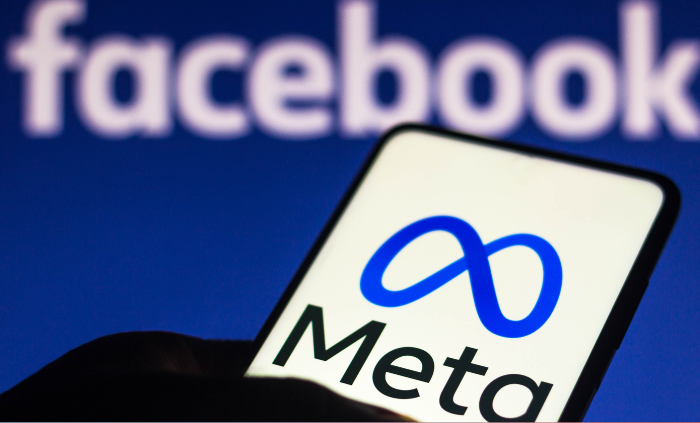CDA Section 230 Groundbreaking Decision in California Civil Case
Has the Dam Finally Broken or is it just a Leak?
Author:
• SCARS Editorial Team – Society of Citizens Against Relationship Scams Inc.
Article Abstract
NOTE: This article about the Communications Decency Act CDA Section 230 is not intended to be a legal opinion. SCARS is not a law firm nor are licensed attorneys. This is an analysis of this case based on the need to understand the implications for potential future cases and rulings. SCARS has long suggested that social media applications could be considered defective and dangerous products, and we are gratified to see this concept finally emerge in this case.
In the Case of Neville v. Snap – Applying the Communications Decency Act CDA Section 230 in Groundbreaking Decision in California Civil Case
Judge Rejects Snap’s Section 230 Defense in Neville v. Snap
Has the Section 230 immunity Dam Finally Broken or is it just a Leak?
At this Stage of the Case
The complainants, who are parents of individuals using Snapchat and experienced overdoses after buying fentanyl from other Snapchat users, filed a lawsuit against Snapchat, alleging various tort claims. Seeking to overcome the evident Section 230 protection, the plaintiffs employed the common Lemmon v. Snap strategy, asserting their lawsuit centered on Snapchat’s inherent product design decisions rather than the content provided by drug dealers.
Plaintiffs disavow any claim based upon Snap’s activities as a publisher of the third-party (drug seller) content. That is, plaintiffs do not contend that Snap is liable for failing to eliminate or otherwise moderate some or all of the third-party drug sellers’ content. Instead, plaintiffs’ sole focus, they say, is on (1) Snap’s alleged independent tortious conduct and (2) Snapchat (a “feature-packed social media app.”) as a defective product.
The court rejected Snap’s assertion that it was immune because of the CDA Section 230 and rejected Snapchat’s motion to dismiss.
So the question is, does this open the door for similar complaints against other social media platforms to bypass CDA Section 230 immunities?
SCARS Analysis
In the case of Neville v. Snap, parents of Snapchat users who suffered overdoses from fentanyl purchased on the platform sued Snapchat for various tort claims. To overcome Section 230 immunity, they framed the lawsuit around Snap’s first-party product design choices, not the content of the drug dealers.
The judge, deviating unexpectedly, rejected most of Snapchat’s motion to dismiss, arguing that Snap’s alleged independent tortious conduct and Snapchat as a defective product were distinct from the drug sellers’ content. This decision challenges Section 230 jurisprudence, potentially diminishing the immunity’s effectiveness if such doctrinal rephrasing becomes a precedent.
The legal implications for other social media platforms from the Neville v. Snap case are potentially significant, as it challenges the traditional application of Section 230 immunity. Section 230 of the Communications Decency Act provides broad protections to online platforms, shielding them from liability for content posted by users. However, the judge in this case rejected Snap’s Section 230 defense, arguing that the plaintiffs focused on Snap’s alleged independent tortious conduct and the defective nature of Snapchat as a product, rather than the content of the drug dealers.
The Key Legal Implications for other Social Media Platforms
- Increased Scrutiny on Product Design Choices: Platforms may face more scrutiny over their product design choices and features. If plaintiffs can successfully argue that a platform’s design contributes to harm independently of user-generated content, it could open the door to liability.
- Potential Erosion of Section 230 Protections: If the decision in Neville v. Snap sets a precedent, it might encourage plaintiffs to reframe their claims to target platform design and features rather than user-generated content. This could erode the broad immunity that Section 230 has traditionally provided.
- Need for Clarity on Tangibility Distinction: The court’s rejection of the tangible/intangible distinction may lead to confusion regarding the application of product liability claims to online services. Clarity is needed on whether strict product liability laws can be applied to intangible services like social media platforms.
- Impact on Nomenclature Battles: The case highlights the importance of the terms used to describe platforms (e.g., service, app, product). The nomenclature battles could become more critical in determining the applicable legal standards and analogies.
- Potential Appeal and Precedent Setting: The case is likely to be appealed, and the outcome at the appellate level will be crucial. If the decision stands, it may set a precedent that challenges the broad protections traditionally afforded to online platforms under Section 230.
Summary
In summary, the Neville v. Snap case introduces legal uncertainties and potential challenges to the established understanding of Section 230 immunity. Social media platforms should closely monitor developments in this case and consider the implications for their own liability protections.
More:
- Judge Goes Rogue and Rejects Snap’s Section 230 Defense for [Reasons]-Neville v. Snap – Technology & Marketing Law Blog (ericgoldman.org)
- The Ninth Circuit’s Confusing Ruling Over Snapchat’s Speed Filter-Lemmon v. Snap – Technology & Marketing Law Blog (ericgoldman.org)
- Supreme Court’s dodge in Gonzalez v. Google (ericgoldman.org)
- The Communications Decency Act Section 230 Meets The U.S. Supreme Court (romancescamsnow.com)
- CDA Section 230 – Why Facebook & Social Media Largely Ignore Scammers (romancescamsnow.com)
- SCARS Proposed Changes To The Communications Decency Act (againstscams.org)
SCARS Resources:
- Getting Started: ScamVictimsSupport.org
- FREE enrollment in the SCARS Institute training programs for scam victims SCARSeducation.org
- For New Victims of Relationship Scams newvictim.AgainstScams.org
- Subscribe to SCARS Newsletter newsletter.againstscams.org
- Sign up for SCARS professional support & recovery groups, visit support.AgainstScams.org
- Find competent trauma counselors or therapists, visit counseling.AgainstScams.org
- Become a SCARS Member and get free counseling benefits, visit membership.AgainstScams.org
- Report each and every crime, learn how to at reporting.AgainstScams.org
- Learn more about Scams & Scammers at RomanceScamsNOW.com and ScamsNOW.com
- Learn more about the Psychology of Scams and Scam Victims: ScamPsychology.org
- Self-Help Books for Scam Victims are at shop.AgainstScams.org
- Donate to SCARS and help us help others at donate.AgainstScams.org
- Worldwide Crisis Hotlines: International Suicide Hotlines – OpenCounseling : OpenCounseling
- Campaign To End Scam Victim Blaming – 2024 (scamsnow.com)
-/ 30 /-
What do you think about this?
Please share your thoughts in a comment below!
More ScamsNOW.com Articles
SCARS LINKS: AgainstScams.org RomanceScamsNOW.com ContraEstafas.org ScammerPhotos.com Anyscam.com ScamsNOW.com
reporting.AgainstScams.org support.AgainstScams.org membership.AgainstScams.org donate.AgainstScams.org shop.AgainstScams.org
youtube.AgainstScams.org linkedin.AgainstScams.org facebook.AgainstScams.org












Leave A Comment